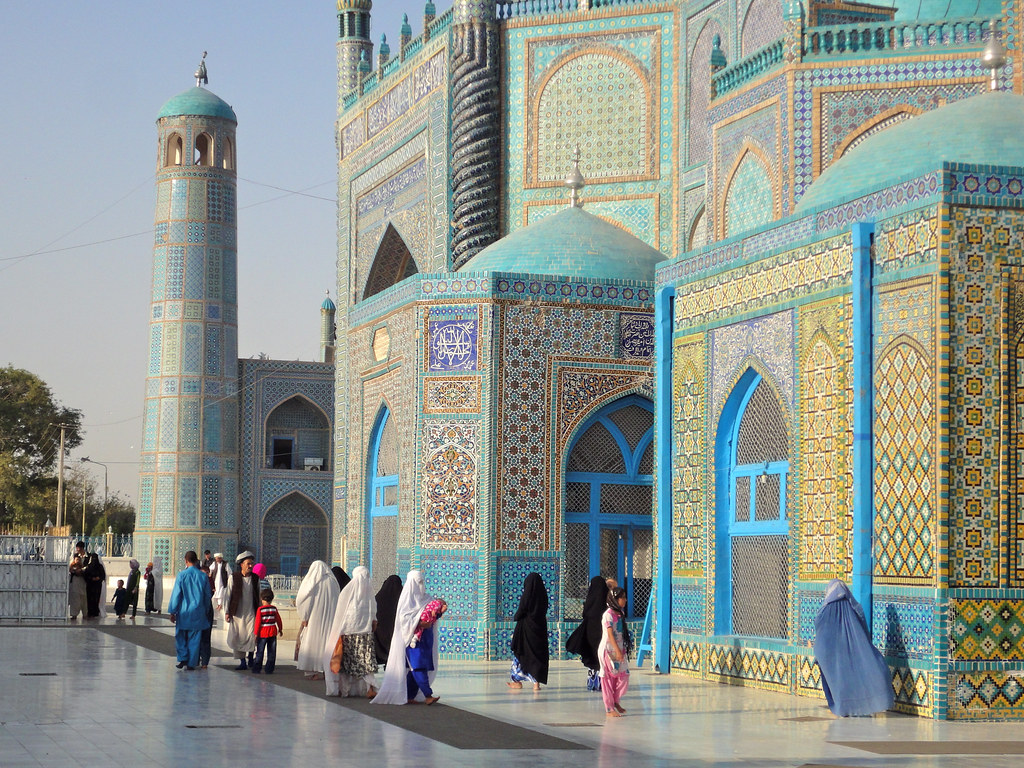
Old Etonians and Old Estonians

Somewhere in some gentleman’s club in 1983, after Margaret Thatcher had sacked four ministers whose early years would have been draped in Eton Blue from the cabinet, former Prime Minister and (bona fide snob) Harold Macmillan made the oft-misquoted jibe that there were now more ‘Old Estonians in the cabinet then Old Etonians.’ The taunt pointed to the Jewish heritage of ministers like Nigel Lawson and Leon Brittan, though neither of them were of Estonian descent. A thinly veiled implication that they could never reach the upper echelon of society, they remained Jewish and therefore from some vague place in Eastern Europe. In short, they’re not English.
Four decades later, and in a recent interview with Fraser Nelson, former editor of The Spectator Magazine, Konstatin Kisin (a comedian in the loosest sense of the word) posed what might be best described as the ‘Rishi Sunak question.’ It’s a simple one: Is Rishi Sunak English?
Kisin’s answer is also remarkably simple: ‘He’s a brown Hindu…how can he be English?’
His response speaks to a shift in the British right, granted not a particularly novel one. Anxieties over immigration and racial dynamics have defined political discourse since Windrush. Enoch Powell at the turn of the seventies spoke of the immigrant Other, refusing to assimilate, harassing the elderly and imposing their unfair demands on the downtrodden Briton. As late as the nineties, Charles Moore—former Editor of The Spectator and The Daily Telegraph—flirted with an explicitly white conception of Britain. His protege, Boris Johnson, was more zealous: his early editorial career is dotted in endorsements of Powell, racial epithets and a biological racialism. In one piece, he describes Jamaican immigrants as ‘ludicrously self-satisfied, macho, lupine-gaited, gold-chained-and-front-toothed predators of the slums, with the bodies of giants and the mind of a pea.’ While it should be granted that their words were at worst, lightly dismissed, at best virulently condemned by Tory leaders, these were hardly marginal figures. It has never been just the rhetoric of the dirty right, the BNP or National Front; it also seeps into the ‘respectable’ right. Ethnonationalism has always been here, never mainstream but lingering impatiently at the margins.
What makes this genre of ethnonationalism distinct is threefold. Firstly, it is straightforward. Kisin finds to be English (and by implication, British), one must be from the right white background, and presumably from the correct faith background, i.e., some denomination of Christianity even if not adherent. Neither a ‘brown Hindu’nor even a Jewish Greco-Russian (like Kisin himself) can properly join the club.
What makes it even more notable is that it is happening now. It comes at odds with two historical forces, so entrenched they seemed no different to how the divine right of Kings would have been in the medieval era. The notion of an inclusive liberal nationalism, and accompanying sentiment that we as a society are past this. In a country where most have non-white acquaintances of some sort, where anti-discrimination is now a central tenet of the law, and in the light of a post-BLM and other racially conscious movements environment; one could be mistaken for thinking this kind of rhetoric just wouldn’t come back with such flair.
But what is perhaps the most disorienting is the ‘Rishi Sunak question’ itself. When we ask questions of English-ness, the subject is usually the archetypal image of the brown and black living in poorer neighbourhoods of the towns and cities. Rishi Sunak is obviously different. He is Billy-no-working-class-mates, a product of Empire. Descended from Punjabi immigrants to East Africa, his family was part of the highly anglicised ‘passenger Indian’ population that formed a prosperous entrepreneurial-professional middle class under British colonial administration. There is even something absurdly Wallace and Gromit about his facial expressions: he should be the case in point for total assimilation. But if even a former Prime Minister may be excluded, we dive headfirst into the kind of rhetoric that would make High Tory Enoch Powell gurn with euphoria.
The British right has not transformed overnight, nor has this tired brand of racial essentialism become the dogma of any of the mainstream right-wing parties: Tory, Reform and Starmer’s Labour. But what Kisin’s words speak to is an increasing proficiency of the ethno-nationalist tongue in the language of the philosophes, intellectuals, and cultural critics of the British right.
A notable member of this nascent commentariat goes by the handle @kunley_drupka, named after the Mad Saint of Bhutan. A satirist and illustrator, his Twitter page is littered with images, graphs and cultural references niche enough to give the impression of a Marco Polo or Ibn Battuta-like traveller, accurate enough that someone immersed in that culture may stop to wonder ‘how on earth do they know that?’ A picture of a Barbour-clad Jeremy Clarkson in a provincial English town, with edited rows of Deliveroo drivers, sterile-looking Vape shops and men dressed in Kashmiri folk dress or draped in full balaclavas and tracksuits. Graphs of the beleaguered average man depicting a broken social contract that benefits everyone but himself. There is even a genre of political commentary: ‘Basically-Fineism,’ and ‘Rubber Dinghy Rapids Islam,’ play on the perceived garish nature of British Muslim aesthetics etcetera. There is an air of a British Charlie Hebdo about it all.
The Mad Mystic of Bhutan also runs an account named @MythoYookay, a chronicle of the aesthetics of the ‘Yookay,’ a neologism for the state of modern Britain and a play on how the ‘ou’ noise is enunciated in MLE. The Yookay is the product of mass migration into a nation of stable homogeneity, where the liberalised cultural and political attitudes inherent to ‘historic Britain’ have facilitated a scope of cultural change unprecedented—what Kunley describes as clannishness and social distrust. Yookayification is a disorientating form of mixing and acculturation: ‘a mismatch of culture and aesthetic forms.’ It is a pastiche of brown and black faces—a stark contrast to John Major’s vision of Middle England, of warm pints, rural cricket, suburban gardens, and the poems of George Orwell.
The obvious message is cloaked by an insistence that these are merely ‘dark comedy’ pages employing ‘strictly dispassionate’ analysis, as if they were merely documenting the iconography of modern Britain a la an anthropologist’s journal. In short, if you perceive the hardly implicit message—that immigrants are causing the moral and aesthetic degeneration of the country—that’s on you.
These prognoses of the British state are not limited to the chattering of the depressed Yuppies of London and the commuter towns to satisfy their more ‘intellectual’ (read facile) pretensions. Although there is certainly a market for the kind of bile, among avid readers of The Critic and Unherd, Dominic Cumming’s blog, and a plethora of substack articles—including the frankly awful Pimlico Journal. But they are also followed and read by no shortage of political commentators, namely Rory Stewart; intellectuals, for example: the worst Hitchens brother, Peter; and journalists—many of whom have adopted the terminologies and ethos of this Neo-Powellite heresy.
That heresy informs our political discourse: our incessant obsession with the ‘Boriswave,’ another neologism describing the ongoing large scale immigration patterns that begun during the Johnson Ministry; Robert Jenrick’s bid for Tory leader; and Reform’s growing pains around mass deportations. Even Suella Braverman (herself of Indian East African) coined a response to the ‘Rishi Sunak question,’ titled ‘I will never be truly English: here is why.’
But Major’s England of ‘old maids bicycling to Holy Communion through the morning mist’ is changing, visually and demographically. The Cockneys of the East End have largely been supplanted by the descendants of Bangladeshi migrants, a consequence of social struggle and the shift from communitarian welfare practice—which prioritised good behaviour and long residence in the area—to allocation by need, i.e., countering homelessness which benefited the materially deprived migrants.
Similarly, the formerly prosperous mill towns of East Lancashire and West Yorkshire are now home to communities founded by immigrants from ultraconservative Mirpur in Kashmir; communities that are in many ways segregated from their white co-habitants. This community occupies a certain centrepiece in the anxieties of the right. The actions of members of these communities in Rochdale, Rotherham and even Oxford pose a crisis for British liberalism, where men of predominantly Mirpuri-descent committed atrocious incidents of sexual abuse against underage girls from mostly white backgrounds, often employing racialised language. Whiteness became a synonym for enemy and sexual impurity, and little girls were seen as worthy of abuse for that whiteness.
But what is neglected is that it is not immigrants qua immigrants. These patterns of social degeneration embody a specific section of the British working class, a proletarian culture defined by being alienated materially, and alienated ethnically.
What the right and the acceptable left misunderstand is that Britain has never been pro-immigration. A brief aberration being from 1948 to 1962 permitted migrants from the Commonwealth to serve as an overexploited and expendable labour force, but that was quickly restricted by a set of legislative acts in 1962, 1968, 1981 and 1988 that aimed at fully restricting the ebbs and flows of immigration. Even New Labour’s (much critiqued, now mostly discarded) experiment towards encouraging skilled migration was complemented by a drive towards assimilation that came hand in hand with fear mongering and an emboldened surveillance state—a panopticon imposed on British Muslims post-2001.
The last four governments have all prioritised restricting immigration rhetorically and substantially, to the point it has become something of cause celebre. Rather than a political elite hellbent on encouraging the ‘Boriswave,’ our political elite seem anything but.
And yet, the ‘Rishi Sunak question’ is a red herring. It was never really about Sunak, though his implication in this phenomenon makes it so novel. It is more a question of whether the black and brown working classes of England could ever be English. The answer is always, and never.
On arrival in the fifties and sixties, Afro-Caribbean immigrants were excluded from the social housing revolution that improved the lives of the white former slum dwellers of the same cities. A zenith of racist harassment and outright violence was aided by the complicity of local police and housing associations.
The unwillingness of local administrations to test the tolerance of white residents in new estates after the 1958 race riots, and the discretion of racist council officers often meant black applicants were excluded and white Britons moved up waiting lists at their expense. This meant leaving the children of the commonwealth at the mercy of similarly prejudiced landlords in the overcrowded, impoverished and dilapidated inner city. When access to council housing was improved towards the late seventies, the black community were largely housed in high density estates, often in the least desirable flats in brutalist tower blocks.
The coup de grace of this total dispossession was the complete financialisaton of Britain. Initiated by Thatcher and brought to fruition by Blair, the plans to turn council estates into republics of homeowners leapfrogged non-white communities: banks were unwilling to loan to those concentrated in the tower blocks, many of which were sold wholesale to property developers, ensuring gentrification. In the North and Midlands, Thatcher’s monetarist revolution accidently heightened de-industrialisation to a level unprecedented, paving the way for a deprived and insular community: a clustered brown underclass later subject to the excesses of a surveillance state. The history of immigration in the UK is a history of being constantly kicked down.
And yet, they must be British. Their entire social existence is defined by this interaction with the British state, a wholesale alienation. The new aesthetics forms that have emerged are not just acculturation or the pejorative ‘Yookayification,’ they are forms of cultural expression moulded in the crucible of class warfare. Moulded by a regime that has turned the country into the flailing decaying skin around the City of London.
Perhaps if Macmillan were alive today, he may make the same jibe about Sunak or Braverman as ‘Old Ethopians’ by virtue of their East African ancestry. Macmillian is dead now, but maybe we should instead ask: Is it worth being English anyway?∎
Words by Zaid Magdub.







